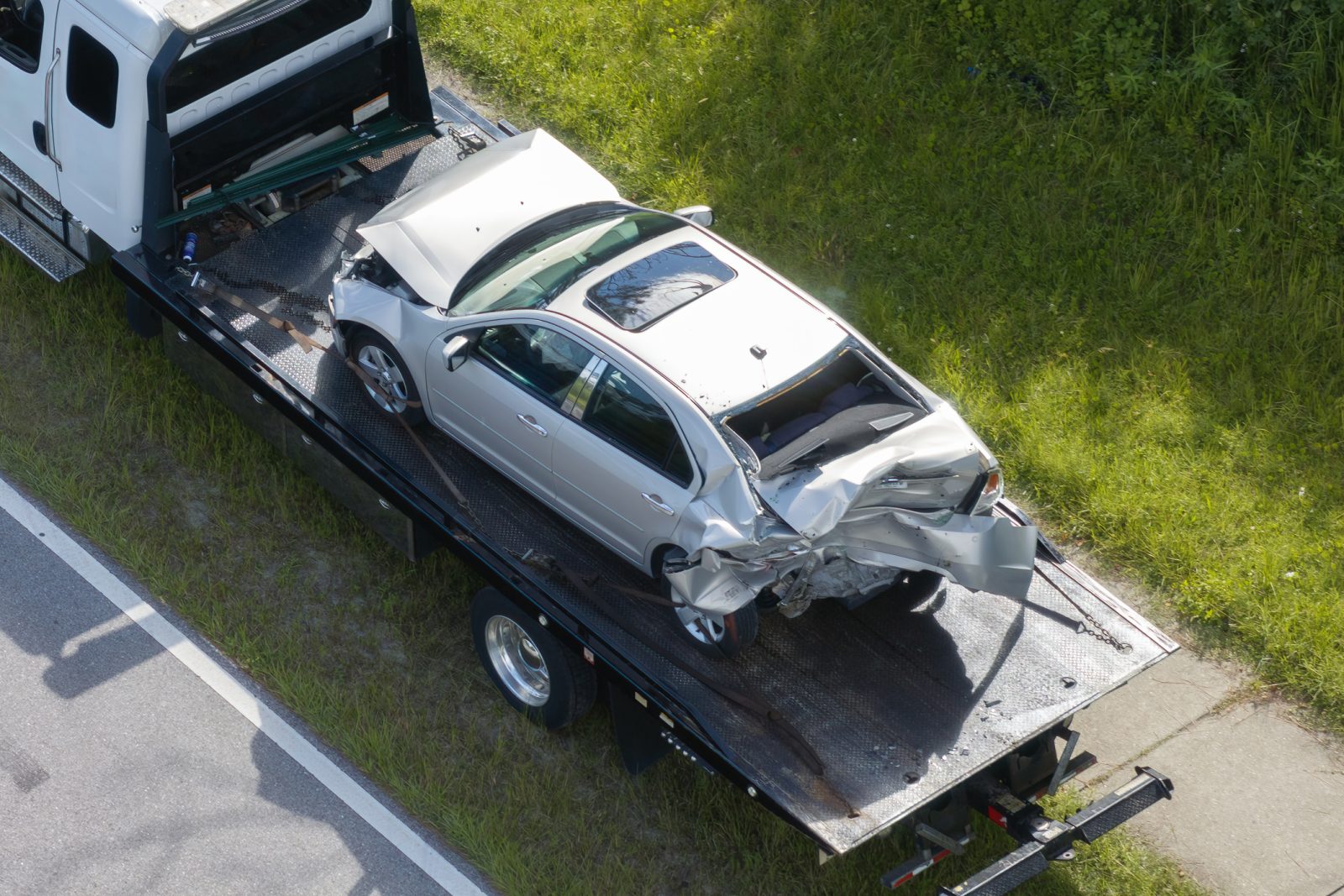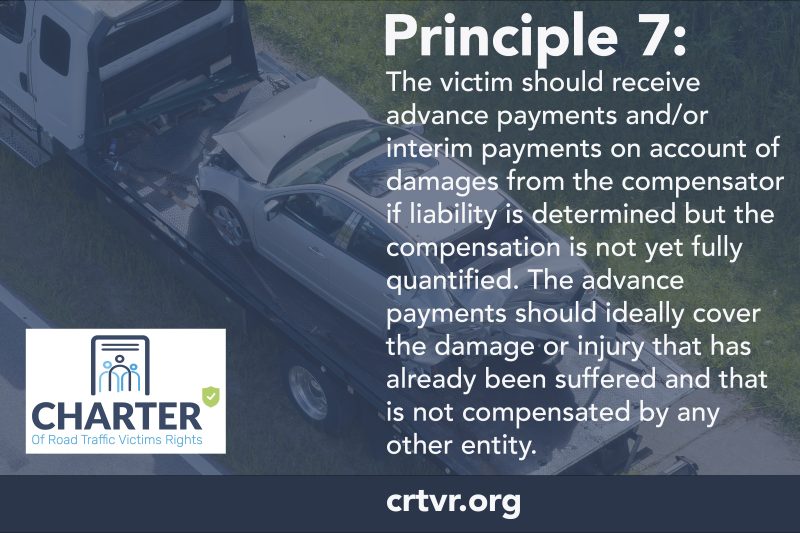Principle 7:
The victim should receive advance payments and/or interim payments on account of damages from the compensator if liability is determined but the compensation is not yet fully quantified. The advance payments should ideally cover the damage or injury that has already been suffered and that is not compensated by any other entity.
Principle 7 of the Charter of Road Traffic Victims’ Rights has a straightforward objective – victims should not be left in financial peril while they go through the claim’s process.
Anyone who has ever had to submit a claim will understand how long that can take. Often this is for very understandable reasons, such as verifying the claim or figuring out the accurate extent of the damages.
When it comes to dealing with the victims of road traffic accidents, the Charter does not want individuals left waiting for indetermined periods of time before they will receive the financial compensation they need. Some of these cases can take a very long time to resolve and victims should not be subjected to financial strain on top of the other problems they have encountered, arising from the road traffic accident.
For example, if the victim sustained severe personal injuries, it can take months and even years before the extent of the injuries are fully detailed, or ‘consolidated’. In some unfortunate cases, those injuries may even take on a more or less permanent character, when the victim’s medical situation no longer improves nor deteriorates. It is only at that stage, which could have taken a very long time to establish, that the full extent of the medical consequences of the accident are known.
In that time, the bills have continued to mount up for the victim. These may relate to medical expenses as well as loss of income and other costs. All of these are impacting on the victim and they must be covered. The victim may not have the resources to cover these expenses for any significant length of time.
That is what Principle 7 of the Charter seeks to address. If it is clear that liability is given (as well as in cases where faultless liability may apply), then the compensating party should pay attention to the costs facing the victim, even before the full extent of the damage is officially confirmed. The compensating party should then begin providing advance payments to the victim, corresponding to the damage already suffered and enabling the victim to cover the costs they have already built up following on from the accident.
Thankfully, this approach has been commonplace in how compensating parties treat victims for a long time. While this is very positive news for victims, it is also advantageous to the compensating party too. By providing advance payments of this nature it helps mitigate the total cost of the claim by reducing the level of interest that may apply.
Unfortunately, in the past there may have been situations where the delay or refusal to make advance payments was used as a means of exerting pressure on the victims. Knowing the financial strain facing the victim, some compensating parties may have pushed the victims to agree compensation at a lower level than the damages warranted.
Those are the type of situations that Principle 7 of the Charter of Road Traffic Victims’ Right explicitly seeks to put an end to.
In keeping with the spirit of this principle, it is also important that when the compensating party is making these advance or interim payments, they clearly explain this is not the full and final amount of damages that will be provided. The victim should not fear they will only receive compensation for a portion of the damage they have suffered. They should know that the advance payments are to cover the costs already faced or which are foreseen in the immediate future, while the full compensation will be awarded at the end of the claim’s process.
The need for this advance payment is clear in a situation where severe personal injuries have been sustained by the victim, but it can also apply towards claims involving material damage. For example, if a car is damaged in an accident and it is repaired to the degree that it can function again, but may require additional repairs to bring it back to its original state.
As long as the full extent of the damage can’t be quantified, then neither can the compensation. However, compensation for the initial damage can be more easily costed and that should be provided to the victim as an interim measure.
The overall sentiment of Principle 7 of the Charter has a simple goal. Victims have suffered due to the road traffic accident that has impacted their lives. This has potentially hurt and injured them, or affected them in many other ways. The Charter wants to put a stop to financial strain caused by the accident being an additional burden for them to carry while they go through the claim’s process.


